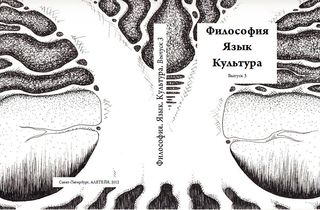?
Homo faber в борьбе за независимость от homo economicus
Гл. 32. С. 345–354.
Зарипов Я. В.
Cataclysms of the twentieth century enabled to speak about the cultural paradigm shift: the New Middle Ages began to crystallize. In this paper the rethinking process (mainly in economic but also philosophical discourse) of the meaning of labour is sketched. The importance of noneconomic sense of labour (which can be understood as Service) has been realized even in some branches of political economy. Self-centred homo economicus is regarded as secondary to unselfish homo faber. Different reasons of standing for this ideal are outlined.
Социологическое обозрение 2025 Т. 24 № 2 С. 233–251
This article advances the idea that war is a political institution in progress—an institution whose function is undetermined, whose structure has not yet been fixed. The attempt to conceptualize war as a biological category is flawed not so much by its failure to analyze the concrete and biological aspects of war, but by its failure ...
Added: January 23, 2026
Sychenkov V., Фак. журн. МГУ, 2024.
The law on the mandatory "fan passport" (Fan ID), adopted by the State Duma on June 1, 2021, was negatively received by many fans. Fans renamed the legislative initiative "Fan, Get Out," and they massively refused to attend football matches. Throughout the year, leaders of various ranks tried to influence fans and explain their position, ...
Added: October 28, 2025
Salta: La Aparecida, 2024.
Added: August 13, 2025
Melnik D. V., , in: Dicionário crítico da Revolução Liberal (1820-1834).: Lisbon: Dom Quixote, 2025. P. 1576–1590.
The contribution to the encyclopedical dictionary describes the 1825 Decembrist Uprising in Russia in a broader conetxt of the political and economic thought of the contemporary Europe. ...
Added: July 24, 2025
Balakina Y. V., Вопросы журналистики, педагогики, языкознания 2025 Т. 44 № 2 С. 249–261
The modern information environment is characterized by an active involvement of media in the processes of formation and transformation of public consciousness during armed conflicts, which necessitates a comprehensive study of the mechanisms of media influence on the perception of military actions and the development of mediatized warfare models. The aim of the study is ...
Added: July 1, 2025
Глобина А. К., Глебова С. В., Конфликтология 2020 Т. 15 № 3 С. 127–148
The emerging technologies have penetrated into everyday life and have become natural part of it. Despite the fact that they made the communication, logistics and bureaucracy much simpler, they also originated a group of problems. Questions of incontrollable behaviour of user’s exists in the dialectic symbiosis with fear of total control by government; all of ...
Added: October 26, 2024
Goryushina E., Осмаев А. Д., История, археология и этнография Кавказа 2024 Т. 20 № 3 С. 607–620
This article analyzes the English-language historiography of the armed conflict in the Chechen Republic. The study employs a periodization approach, which serves as the basis for source analysis and divides the research into two stages: the path towards independence in the wake of the past (1991-1996) and from independence to war (1999-2009). A content analysis ...
Added: October 10, 2024
Croucher S., Nguyen T., Ashwell D. et al., , in: Research Handbook on Communication and Prejudice.: Edward Elgar Publishing, 2024. Ch. 17 P. 270–281.
Added: September 16, 2024
Boianovsky M., Denis Melnik, Cambridge Journal of Economics 2024 Vol. 48 No. 4 P. 589–616
This paper provides a comprehensive discussion of Tugan-Baranovsky’s (1916) seminal study about the working of cooperatives in a capitalist environment, which, due to historical and linguistic circumstances, has left only a limited trace in the subsequent economic literature in the Western world. He claimed to have provided the then only full analytical and historical account ...
Added: July 16, 2024
Nenovsky N., Faudot A., , in: Regards croisés sur Hayek Droit, philosophie, économie.: P.: Editions Matériologiques, 2024. P. 125–155.
Added: June 23, 2024
Galeev A., Galeeva E., В кн.: V Российский экономический конгресс «РЭК-2023». Том I. Тематическая конференция «Методология, история экономической мысли и экономическая история» (сборник тезисов докладов)Т. I: Тематическая конференция «Методология, история экономической мысли и экономическая история» (сборник тезисов докладов).: М.: [б.и.], 2023. С. 70–72.
Несмотря на продолжительное существование истории экономических учений как отдельной дисциплины, обсуждение ее методологического инструментария началось лишь во второй половине XX в. При анализе существующих методов и классификаций были выявлены их общие черты, т.е. некоторые методы фактически являются «частным случаем» других. Авторы предполагают, что многообразие существующих методов историко-экономического анализа можно объединить в принципиально отличающиеся подходы, которые ...
Added: June 3, 2024
Talakauskas D., В кн.: V Российский экономический конгресс «РЭК-2023». Том I. Тематическая конференция «Методология, история экономической мысли и экономическая история» (сборник тезисов докладов)Т. I: Тематическая конференция «Методология, история экономической мысли и экономическая история» (сборник тезисов докладов).: М.: [б.и.], 2023. С. 29–32.
- ...
Added: May 28, 2024
М.: [б.и.], 2023.
Все тексты публикуются в авторской редакции. ...
Added: May 28, 2024
Tabolin V., Грищенко Л. Л., В кн.: Экстремальные ситуации, конфликты, социальное согласие: Сборник материалов XXV Международной научно-практической конференции 23 ноября 2023 г.: М.: Академия управления МВД РФ, 2023. С. 260–269.
В данной статье особое внимание обращено не столько на общие вопросы правового обеспечения конфликтов по обширной территории, сколько на территории ограниченной рамками городов. ...
Added: May 2, 2024
